An Afternoon with Luis Dias
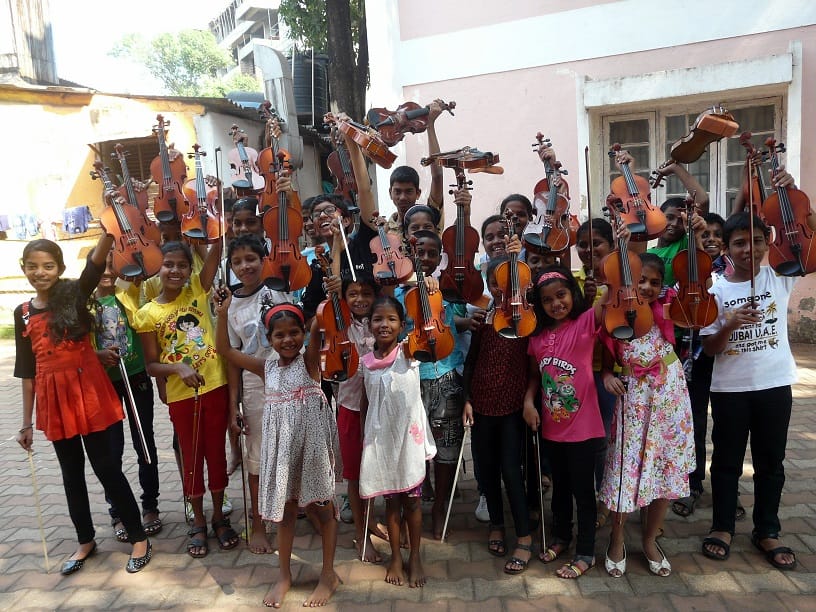
On a hot afternoon on Good Friday in Goa, when the streets were deserted and the shops shuttered, I sat in what used to be an old mint and listened with rapt attention to Luis’ story. A story about how music can change lives.
“I remember as a child, going down to the tea shop, and seeing a beggar pointing to the shop window, crying”, recalled Luis. “He was crying because he was hungry. But the shop owner drove him away. I was traumatised. The only thing that differentiated this man from me was a little piece of metal in my hand, this thing we call money. If I did not have that, I wouldn’t be able to eat either.” This was a profound realisation for 7-year-old Luis, who struggled with the injustice of the situation. “Why is it?’ he said, “That some people have this thing called money, and they eat, and the people who don’t, starve?”
Luis went on to become a doctor, and a firm believer in human potential. He said, “When a baby is born, they all look the same. They bleed the same way and cry the same way. They have the same potential. What changes is whose baby it is. If you switch two babies at birth, they would go on to lead completely different lives.” Luis felt that this lottery of birth was not only unfair, but also a waste of potential. He wondered, “What if a baby born on the street, or in a slum is supposed to cure HIV? What if he is supposed to solve global warming, but is never allowed to go to school? How much are we losing because he is never given the opportunity?”
“What if a baby born on the street, or in a slum is supposed to cure HIV? What if he is supposed to solve global warming, but is never allowed to go to school? How much are we losing because he is never given the opportunity?”
He talked about the de la Pietà orphanage in Venice. “The Italians had a wonderful notion about foundlings, rooted in legend of Remus and Romulus. They believed no child should be neglected. If one abandoned child, raised by wolves, could found the eternal city of Rome, what could another abandoned child do?” The orphanage had a door which was only large enough to accept a baby, and abandoned children were taught music and turned into artists. Masterpieces, like the Vivaldi Gloria, were written there.
“The Italians had a wonderful notion about foundlings, rooted in legend of Remus and Romulus. They believed no child should be neglected. If one abandoned child, raised by wolves, could found the eternal city of Rome, what could another abandoned child do?”
It was Luis’ love for music, and his passion for helping children realise their potential, which led him to ask his wife, on a cold weekend in January 2007, “Wouldn’t it be wonderful if we give instruments to kids on the street, teach them how to play, and turn them into orchestras?” Imagine his surprise when he looked at the program for the BBC Proms in summer 2007, and saw that the Simon Bolivar Youth Orchestra from Venezuela would be performing at the Royal Albert Hall. He also saw the young musicians from the Buskaid Soweto String Ensemble, South Africa, perform on stage alongside the English Baroque Soloists. These performances were an embodiment of the very idea that had taken root in his mind a few months ago. He found them mind-blowing in terms of exuberance, confidence and poise. Here were kids from deprived neighbourhoods, playing as if they had been trained at conservatories.
“Wouldn’t it be wonderful if we give instruments to kids on the street, teach them how to play, and turn them into orchestras?”
After the concert, Luis managed to personally meet the kids from South Africa, and one of them made a very powerful statement, one Luis would never forget: “Music saved my life”. “He said it in a very matter of fact way, as if it was a very obvious thing”, said Luis. But Luis realised that had this boy not been given a violin, he would have been forced into crime or been a victim of crime. Music had, literally, saved his life. He had never imagined that music could be so powerful. He had never thought of connecting his concern for social equality with his love for music. Now he realised that the two could be intertwined into something more beautiful than anything he could ever have imagined.
“Music saved my life”
He wondered if anybody had tried this in India. He asked himself, “If it can be done in Venezuela and South Africa, why can’t it be done in India?” And with this dream in mind, Luis left his job and his life in UK behind, and moved to Goa to start the Child’s Play India Foundation in 2009. With the aim of social empowerment alongside musical excellence, the foundation teaches underprivileged children to play all kinds of musical instruments. “Children learn at an incredible speed”, said Luis. “If we can provide our children good teachers and role models, they could become conservatory level musicians in a very short time.”
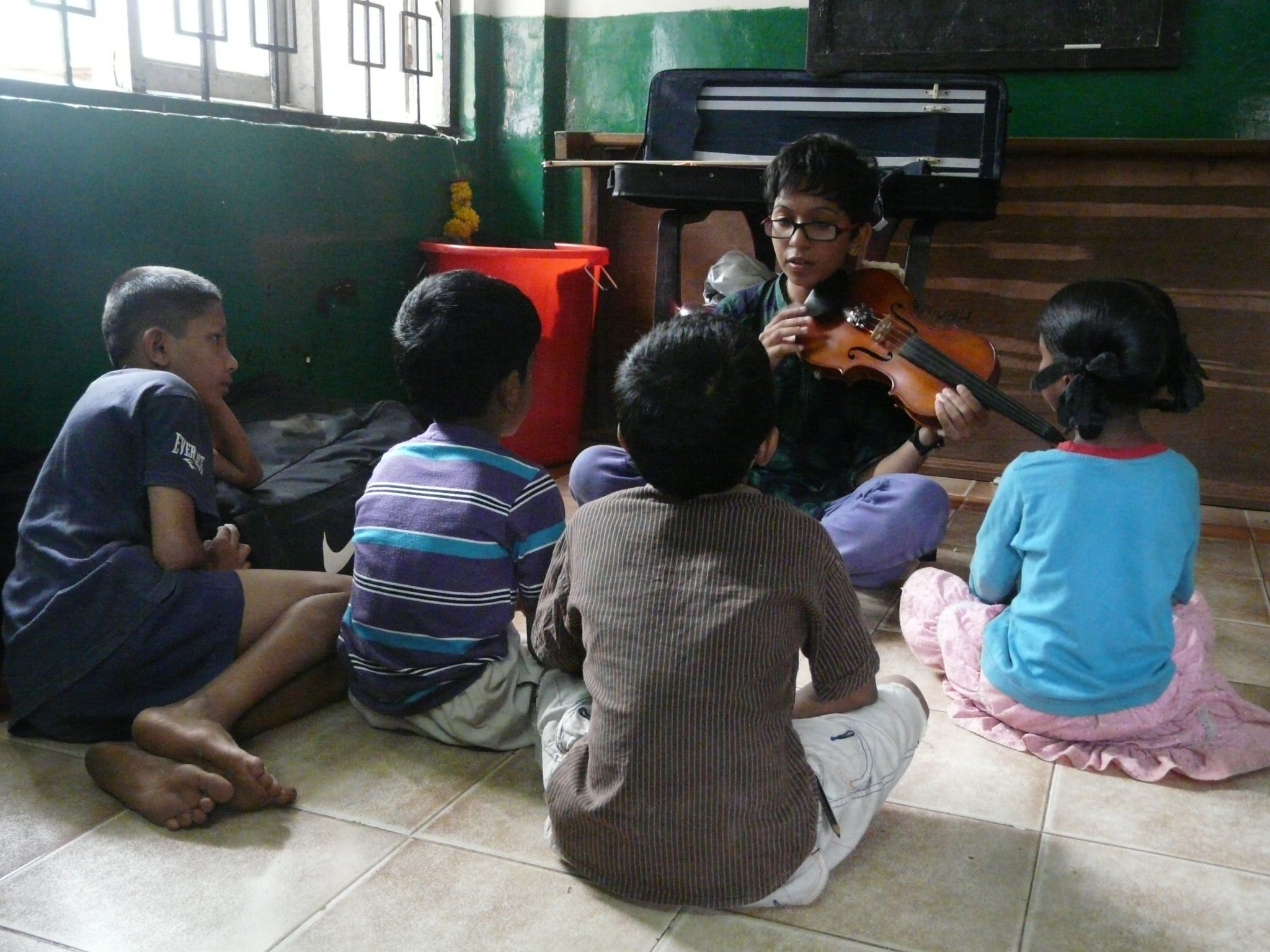
His dream is to give the kids access to the best music teachers in the world. But scarcity of teachers and role models is the biggest challenge faced by Child’s Play India. Luis said that even in his little town of High Wycombe in the UK, there were more music teachers than in all of Goa. He described the situation of western classical music in India as “glass half full half empty”. On one hand, with the advent of technology, music and musical learning have become so much more accessible. You can take music lessons over Skype. You can stream concerts live from anywhere in the world, and your music library is not restricted to the cassettes available in the store. In the past, you couldn’t read about Beethoven unless you had a textbook about him, but today you can just Google it!
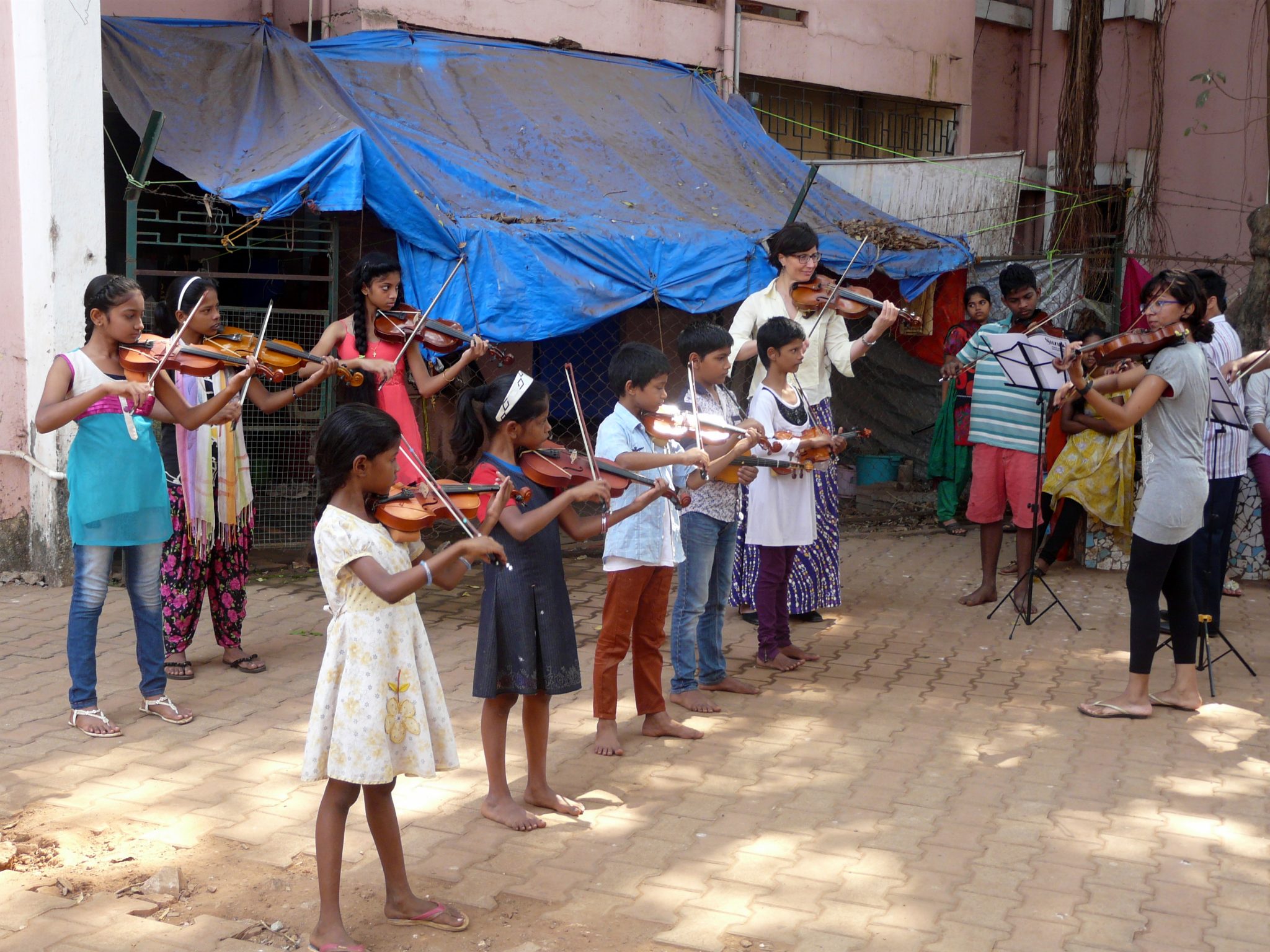
On the other hand, the situation in India is dismal when it comes to exposure to western classical music. There is a dearth of people who can play music and teach music, serving as role models for children. There is no conservatory, or purpose built music venue other than the NCPA. “Even China has a conservatory”, Luis mentioned. “The Indian economy opened up around same time as China. We are not that far behind in terms of economic power, but culturally, we have not done the same things. Visiting orchestras don’t come to India because there aren’t venues for them to perform. In China they have many cities to tour, unlike India. When the New York Philharmonic came to Mumbai, an acoustic shell had to be imported from New York! We are the only BRICS country, which doesn’t have western classical music in a big way. This needs to change.”
“The Indian economy opened up around same time as China. We are not that far behind in terms of economic power, but culturally, we have not done the same things.”
Luis pointed out that the time is ripe for India to bring about this change. He said, “I am patient but I am also in a hurry. India is one of the youngest countries in the world and has a demographic dividend. History has shown that every country had its boom when it had lots of young people. If their potential can be captured and used creatively, we can make huge advances. But we only have this window for a couple of years. How many kids are ripe for learning music? Probably millions. If we waste 1 year we have lost those millions, if we waste 5 years, we will lose 5 times as many. It’s like having a hole in your bucket. So, I am impatient. By helping the underprivileged, we can create a grassroots movements, and by getting the teachers to teach them, we can build the foundations of a conservatory. Both tiers of pedagogy would thus be in place.”
“History has shown that every country had its boom when it had lots of young people. If their potential can be captured and used creatively, we can make huge advances. But we only have this window for a couple of years.”
Luis knew that he took a great gamble by leaving UK, where he had access to the best music in the world. But he wanted to create that here, in India. He said that he thought of it in terms of the epitaph story, “What do I want written on my gravestone? Here lies Dr. Luis Dias, GP, High Wycombe, looked after 7000 patients or Here lies the founder of Child’s Play, India, who started a social music movement which touched the lives of millions?”
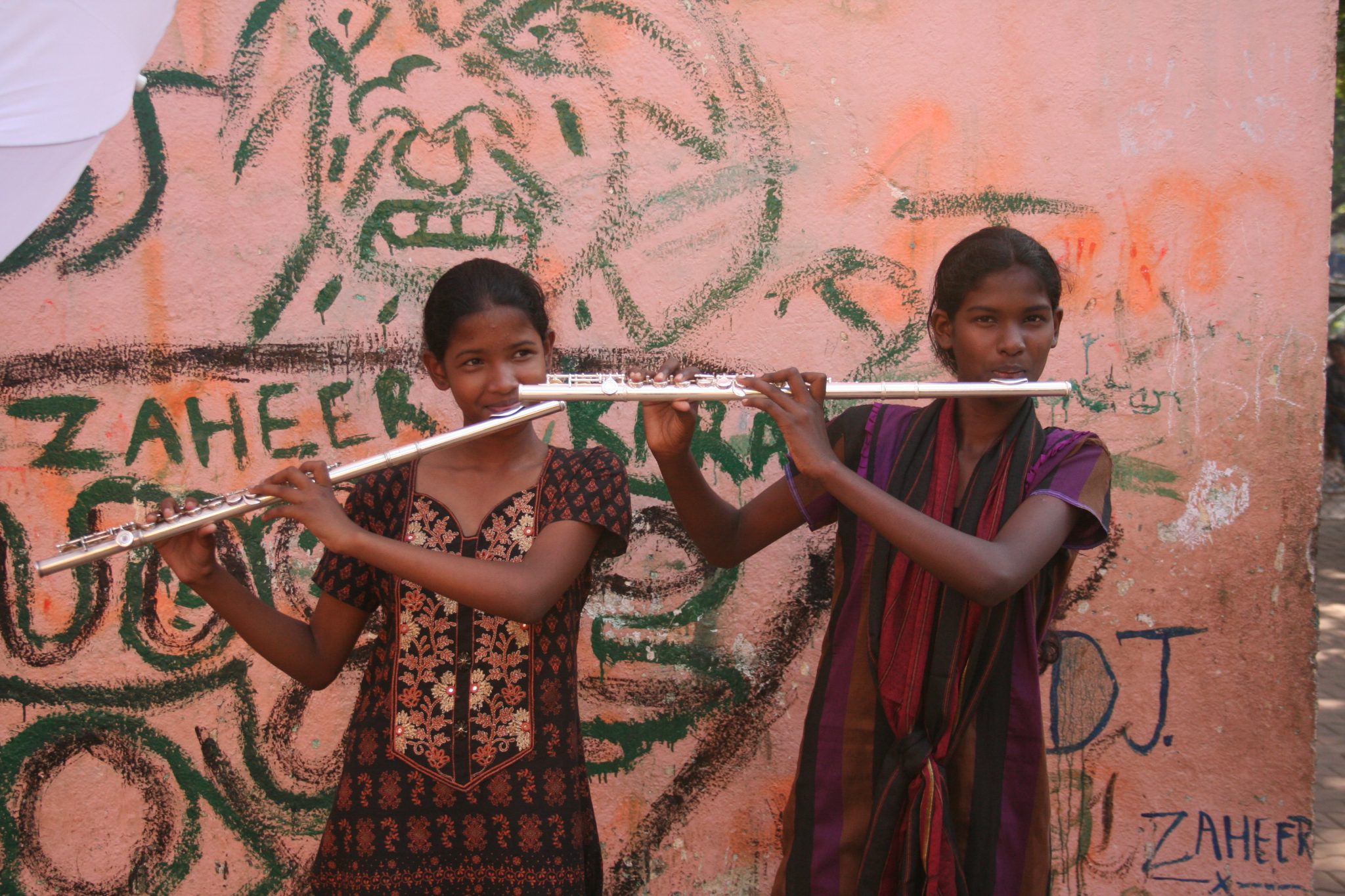
As we walked outside and said goodbye, Luis pointed to a statue in the square. It was the statue of his great-grandfather, son of an okra farmer who became one of the most respected doctors in Goa, and I realised that it was only a matter of time before people talked about Luis Dias, a doctor who changed lives through music.
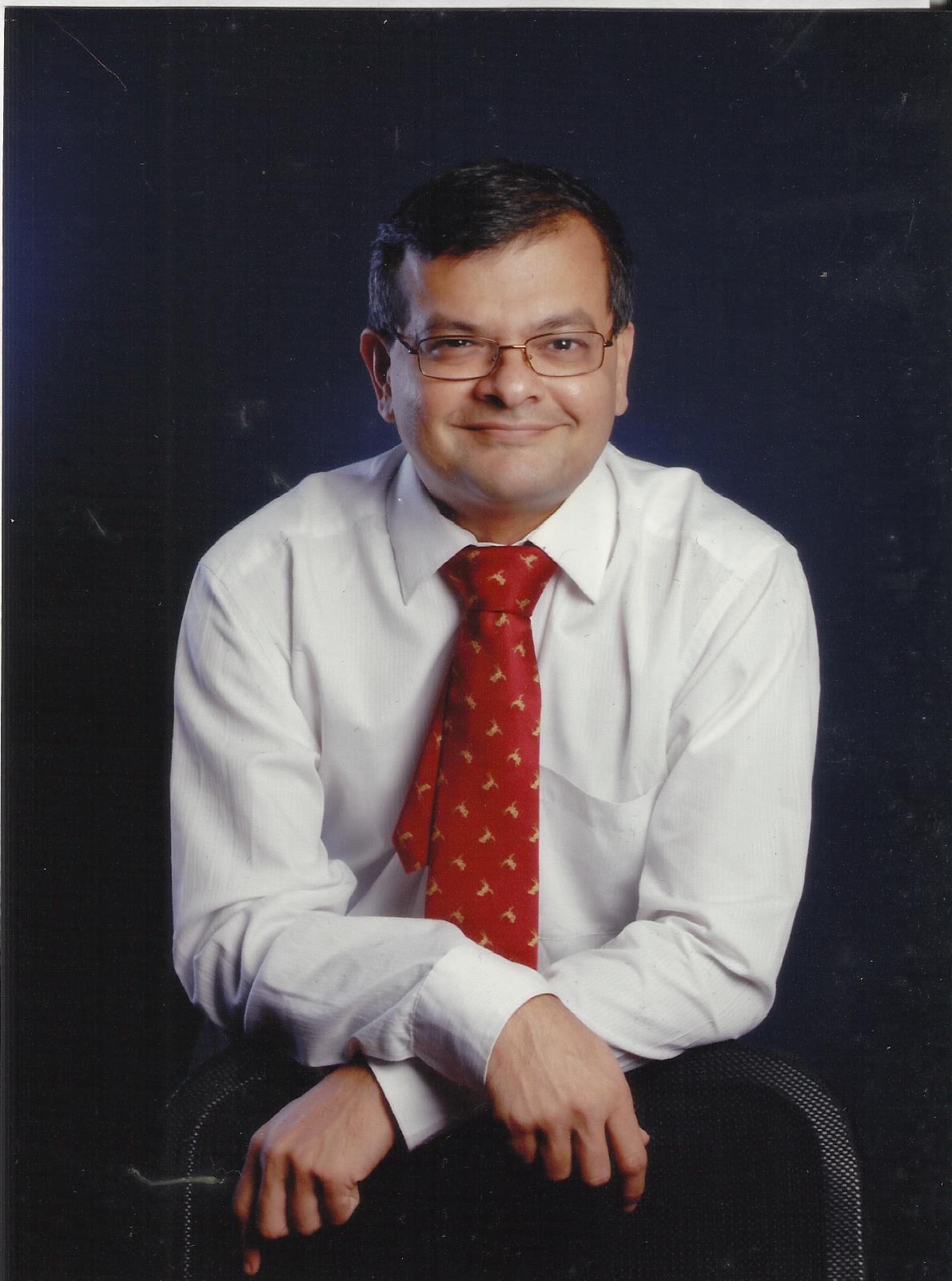
A special thanks to Carlos Gómez Legaspi for helping with the interview. Thank you for always supporting me, in music, in writing and in life.





